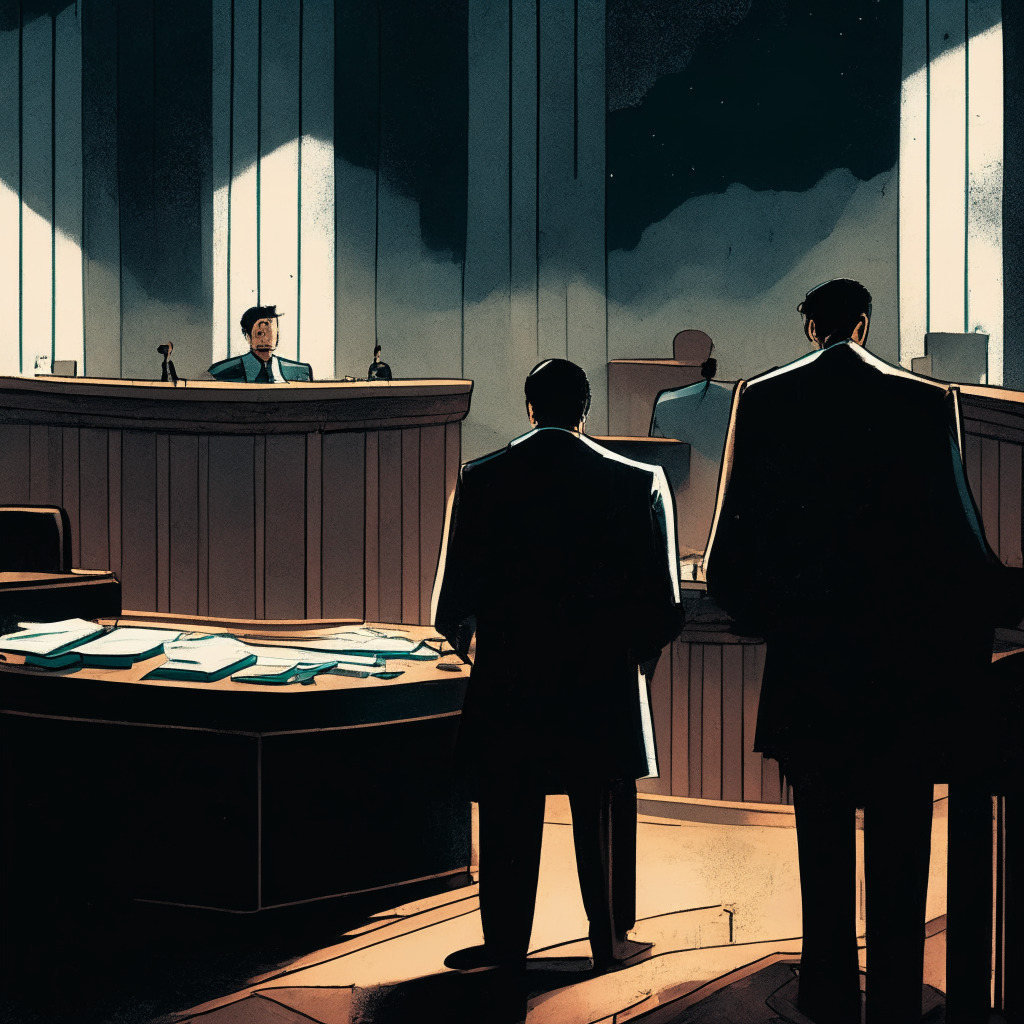The cryptocurrency world is abuzz with the legal drama unfolding concerning Shin Hyun-Seong, also recognized as Daniel Shin. He is alleged to have garnered illicit profits from the sale of Terra (LUNA) tokens and is now under indictment in South Korea in connection with the collapse of Terra and Luna cryptocurrencies, a rostrum that he established alongside co-founder Do Kwon, in 2018.
What sets this case apart is Shin’s monumental role in the crypto space – Terraform Labs’ co-founder – and coupled with the implementation of the Luna cryptocurrency, it’s a narrative that the crypto community is watching with a sense of trepidation and utter fascination. This complexity was deepened with the introduction of the algorithmic stablecoin Terra in 2020 to uphold a benchmark value parallel to the US dollar.
The arrival of last year’s May made eerily clear the gravity of this situation, when Terra’s collapse triggered a ripple effect, pulling the cryptocurrency market down with it. Following this calamity, probing authorities turned their attention to both Kwon and Shin, scrutinizing for any illicit transactions connected to the crash.
The legal proceedings began on July 10th with a trial preparation hearing for Shin and seven alleged cohorts, as uncovered by News1 Korea. These initial stages of trial stirred up controversy primarily due to previous concerns over the Chief Judge, with claims surrounding his impartiality. It was ultimately postponed for August 28th.
The crux of the prosecution’s argument against Shin and his cohorts is that they allegedly manipulated transactions and spread false information about the Terra project. This, reportedly, led to investors putting their trust in the venture’s feasibility, a move that later backfired dramatically. It goes further, stating that they strategically sold their coins before the disastrous Luna coin crash, reaping an undue profit of 462.9 billion won and misappropriating 376.9 billion won.
In an additional twist to the story, Shin is also accused of duping investors with a deceptive business model focused on Chai Pay, claiming it would reduce costs via blockchain technology. This alleged scam netted him a staggering 122.1 billion won in unjust gains.
The trial is set to further unfold and will undeniably send waves throughout the crypto industry, possibly setting new precedents for how founders’ and high-level executives’ actions can contribute to market instabilities and crashes. It’s a story that could deliver promising insights for anyone looking to invest or comprehend the potential hazards in the world of crypto.
Source: Cryptonews




